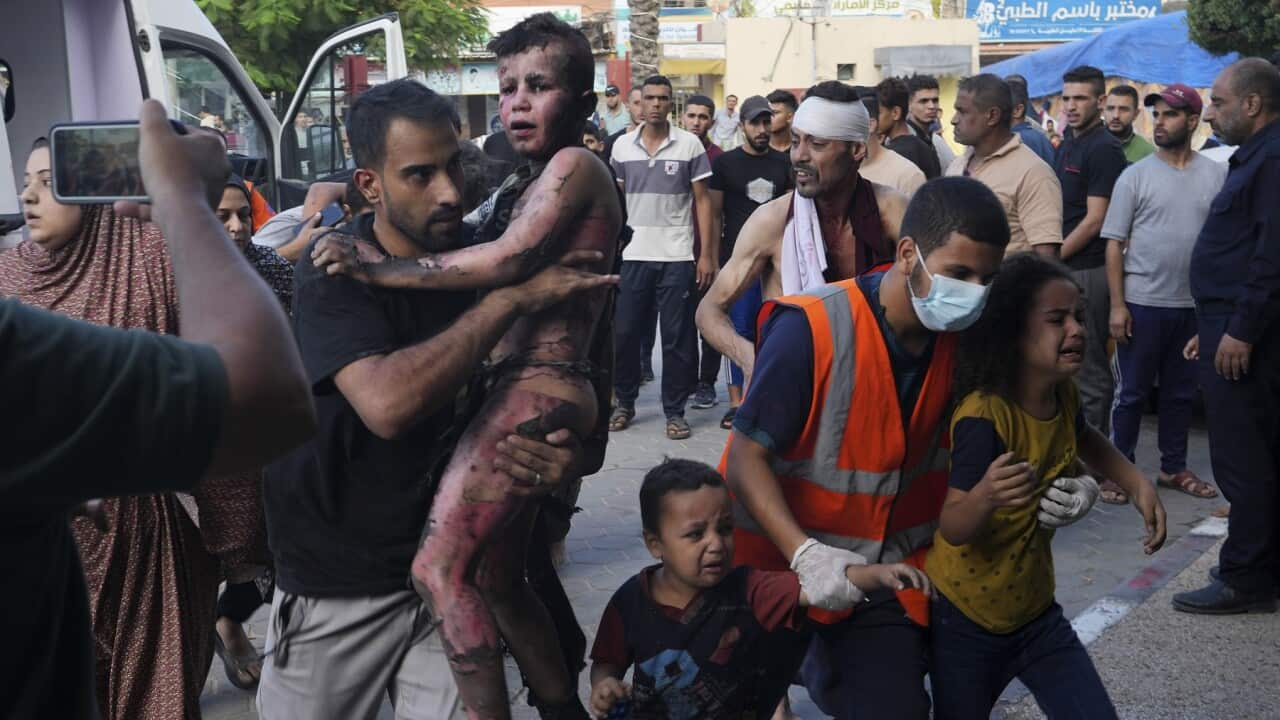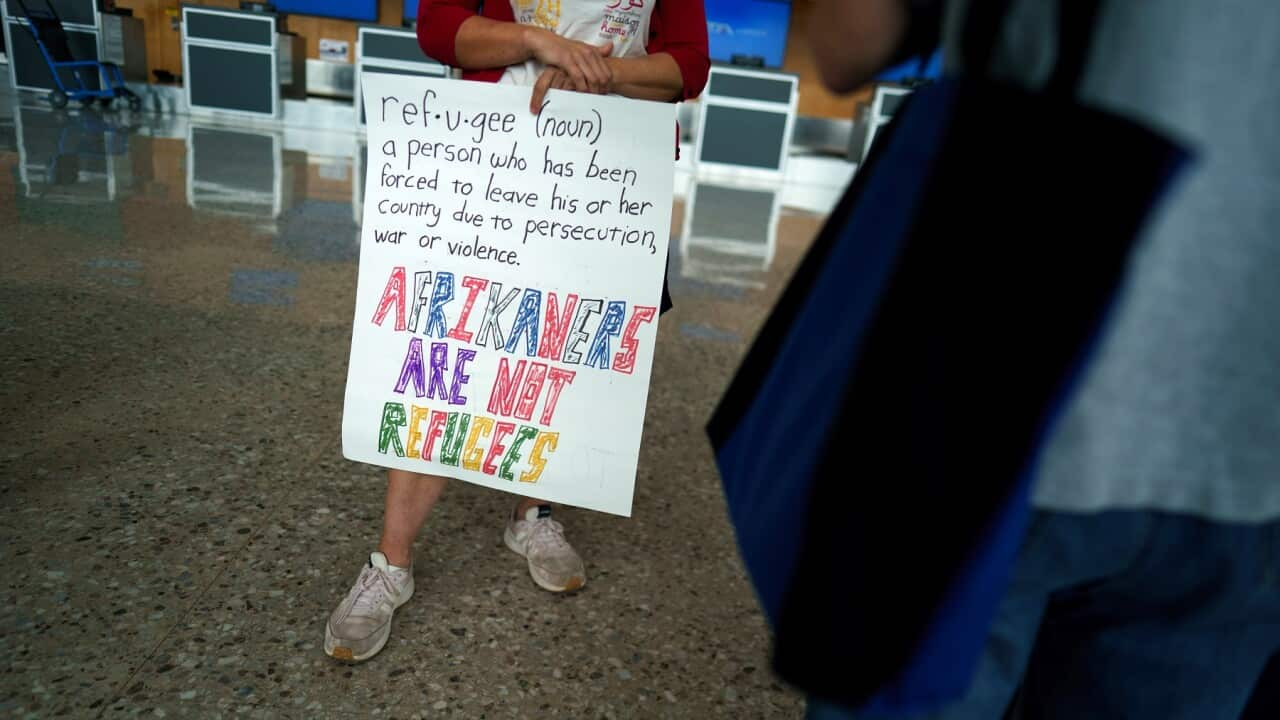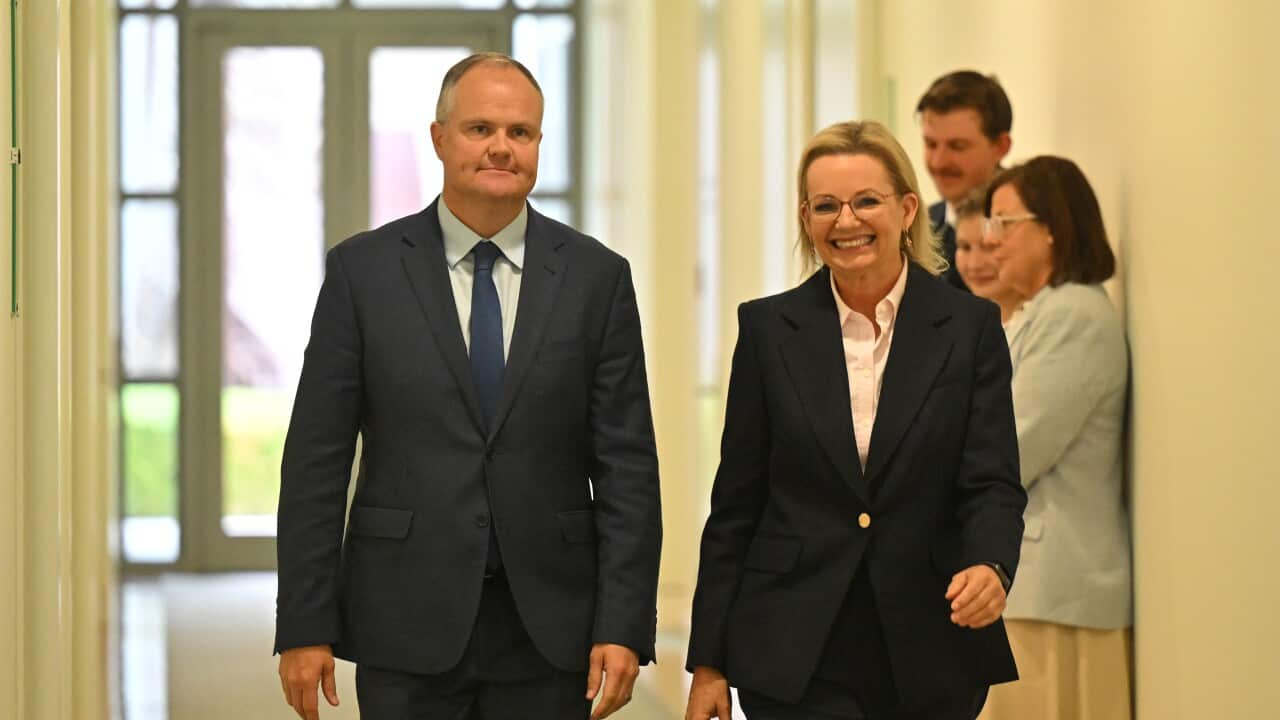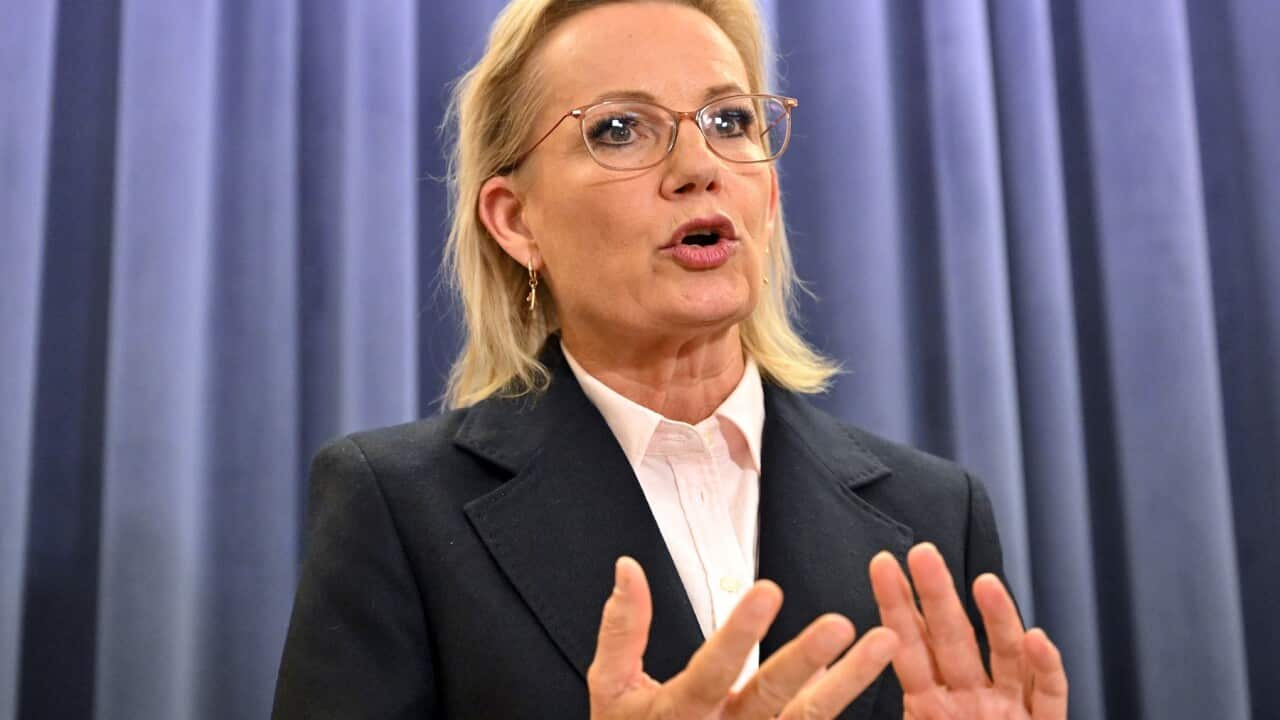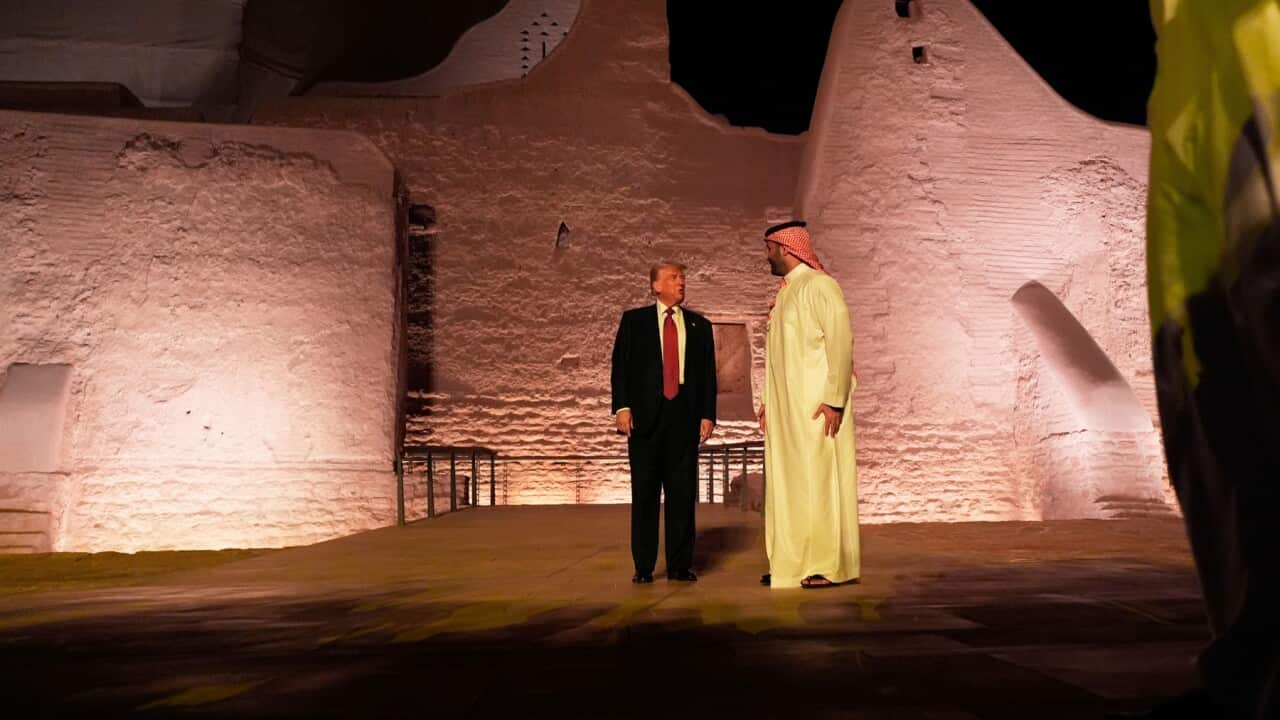TRANSCRIPT
Israel's bombardment of central and southern Gaza has intensified, despite their pledge to shift to a more targeted campaign.
There are particular concerns for the one remaining functioning hospital in Gaza, al-Aqsa, where medical staff are concerned about fighting in nearby areas.
An Israeli air strike killed at least seven Palestinians in Gaza's Deir al-Balah - with those wounded taken to al-Aqsa hospital.
The strike hit a falafel stand, where one of the merchants Hani Salameh works.
“We have sold falafel here for the past two months, we help people. These two are workers, they work daily from 7am to 9pm. The two were here, one was sitting next to me, and the other here. We heard the missiles. I don't know how half of him, his upper part, half of his body was on this side and the other part was on the other side. The second one was killed here. They are martyrs. May their souls rest in peace. There is no God, but one God.”
In the same area, the Palestinian Red Crescent said four of its staffers were killed when their ambulance was hit by an Israeli strike.
Two passengers in the ambulance were wounded and later died.
Head of the Palestinian Red Crescent Society branch in Deir Al-Balah, Hatem Al-Dabak, says the incident directly targeted medical staff.
“A direct target means we won't be able to save the lives of the wounded. We had many calls before that Ambulances will be moving, but it looks like they want to stop saving patients because of this direct airstrike.”
This comes as Israel insists they plan to begin withdrawing troops, at least from northern Gaza, and Prime Minister Benjamin Netanyahu says Israel has no intention of permanently occupying Gaza.
“I want to make a few points absolutely clear: Israel has no intention of permanently occupying Gaza or displacing its civilian population. Israel is fighting Hamas terrorists, not the Palestinian population, and we are doing so in full compliance with international law. The IDF is doing its utmost to minimize civilian casualties, while Hamas is doing its utmost to maximize them by using Palestinian civilians as human shields.”
But neighbouring countries are calling for more to be done to end Israel's assault on Gaza.
The leaders of Egypt and Jordan firmly rejected any plans to uproot Palestinians from Gaza, after their meeting with Palestinian Authority President Mahmoud Abbas.
This support for Palestinian civilians is extending beyond neighbouring countries, particularly in South Africa which brought forward a genocide case against Israel to the International Court of Justice, which is set to commence.
At an inter-faith prayer meeting in a predominantly Muslim area of Cape Town, a small but vocal crowd demonstrated their support for Palestinian civilians in the Gaza Strip.
Local South African politician Muhammed Haron was there.
“They talk about justice for themselves, but forget about the injustice they have committed to others. They talk about human rights for themselves but the human rights they’ve committed against the Palestinians, they don’t even… it’s silence.”
Israel has flatly condemned these allegations of genocide, with Israeli President Isaac Herzog calling them 'atrocious' and 'preposterous'.
This comes as the World Health Organisation was forced to cancel yet another planned medical mission to Gaza over security concerns.
Director-General Tedros Adhanom Ghebreyesus said it was the sixth mission to northern Gaza cancelled because requests to visit had not been approved since their last visit on December 26.
“Delivering humanitarian aid in Gaza continues to face nearly insurmountable challenges. Intense bombardment, restrictions on movement, fuel shortage and interrupted communications make it impossible for WHO and our partners to reach those in need. We have the supplies, the teams and the plans in place. What we don’t have is access.”
WHO Emergencies Director, Mike Ryan, said it would be a "gargantuan" task to restore the public health system in Gaza even with a ceasefire.
He said there should be humanitarian pauses in Gaza at the very least.
“Do you replace a truck of food with a truck of lab supplies? Which truck has more priority? Which services need to be most acutely rebuilt? Is it to bring in water testing equipment or is it to bring in water? These are the trade-offs, these are the compromises that have been made by the international partners in deciding what can be brought in, what's the highest or lowest priority. So much public health infrastructure has been destroyed, or put beyond use in Gaza, that it is impossible to even contemplate.”
